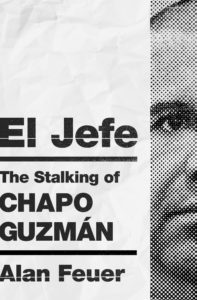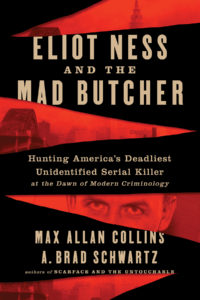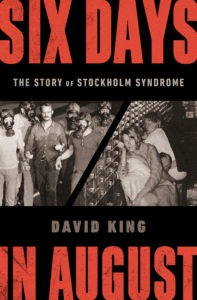These are boom days for writers and readers looking for thoughtful, hard-hitting stories about real-life crime. Whether you’re in the mood for a high-octane page-turner, an investigation, or a penetrating memoir, chances are there’s a book (and many a podcast or docu-series) out there for you. Every month, we round up the best new crime non-fiction with recommendations from CrimeReads staff. Here are the selections for August 2020:
El Jefe: The Stalking of Chapo Guzmán, by Alan Feuer
(Flatiron Books)
Feuer is the courts reporter for the New York Times Metro desk and had a front row seat when the circus that was the trial and detention of El Chapo Guzman came to town. Feuer is an experienced hand with tales of mobsters, international crime, and corruption, and he brings a wide perspective and a keen eye for detail to Guzman’s story. Reminiscent of Mark Bowden’s Killing Pablo, El Jefe is an exhilarating, expertly told story of one of modern law enforcement’s most fascinating chapters.
The Book of Atlantis Black, by Betsy Bonner
(Tin House)
Betsy Bonner’s intensely powerful new memoir begins with the discovery of a woman’s body in a Tijuana hotel room. Although the police are unable to confirm an identity, the body is cremated. Later, it’s determined that the woman was Bonner’s sister, Atlantis. Delving into her own memories and a long forensic trail of online life, Black reconstructs her sister’s story, including a vivid portrait of past abuses, and follows her down a dark, dangerous path toward the tragic end. The Book of Atlantis Black is a deeply felt, vividly written book that you will shake readers to their core and won’t soon be forgotten.
Eliot Ness and the Mad Butcher: Hunting America’s Deadliest Unidentified Serial Killer at the Dawn of Modern Criminology, by Max Allan Collins and A. Brad Schwartz
(William Morrow)
Collins and Schwartz continue their chronicles of the life and times of one of America’s most famous lawmen, this time addressing the question of what happened to Ness after his most famous years, during Prohibition. As it turns out, Ness fell out of favor, was banished to Chicago, did time fighting bootleggers in the mountains, then eventually found his way to Cleveland, where he headed up the hunt for a serial killer known as The Mad Butcher. So, all in all, it was a pretty eventful follow-up. Collins and Schwartz bring their usual novelistic chops to the story, laying out a compulsive and insightful story.
Veritas: A Harvard Professor, a Con Man and the Gospel of Jesus’s Wife, by Ariel Sabar
(Doubleday Books)
In 2012, a Harvard Divinity School scholar announced a discovery that would send shockwaves through the Catholic Church: an ancient document in which Jesus supposedly referred to Mary Magdalene as “my wife.” Ariel Sabar began investigating the breakthrough in the early days, and his reporting took him across the globe, including to some particularly odd quarters in Florida, as well as East Berlin’s intelligence-haunted warehouse districts. Authenticity doubts soon creeped in, and Sabar began unraveling a mysterious story of faith, forgery, scholarly fervor, and a scandal that went at the roots of a major world religion.
Six Days in August: The Story of Stockholm Syndrome, by David King
(W.W. Norton & Company)
The phrase “Stockholm Syndrome” has become so ingrained in the popular consciousness that it’s easy to forget there was a real event that inspired the phenomenon, and it happened not that long ago. In August 1973, a man in a wig fired a machine gun into the ceiling of a Stockholm bank, setting off six days of chaos as hostages hunkered down inside the bank and came to develop complex sympathies with their new captor. David King has made those six days, and their long aftermath, the focus of this intriguing new book, which brings new insights into just exactly what transpired in that Swedish bank.
Memorial Drive, by Nathasha Trethewey
(Ecco)
Natasha Trethewey is a Pulitzer Prize-winning poet, but her new book is a mixture of true crime and memoir, as she delves into the horrifying story of her mother’s murder, killed by Natasha Trethewey’s former stepfather. Beautifully written, and achingly heart-rending, Memorial Drive is a powerful portrait of loss, love, and the long shadow of cruelties large and small.
___________________________________
And One Critical Study…
___________________________________
Detectives in the Shadows: A Hard-Boiled History, by Susanna Lee
(Johns Hopkins University Press)
Literary and cultural critic Susanna Lee offers a fascinating study of an evolving figure central to American literature: the private detective. Looking at some of the most iconic figures in fiction and skillfully putting them into the context of their creation and reception, Lee tells a story of America through the decades. Now, at a time when crime fiction is reckoning with its relationship to the police and law enforcement, it’s a useful time to remember the literature’s long roots with the outsider figure, one often at odds with the police but still reflecting certain entrenched societal views. Lee has a profound and nuanced understanding of the writers and books she’s dealing with, and her insight into where the belong in the cultural framework is consistently illuminating. This is a book all serious crime fiction readers should have on their shelves.
























